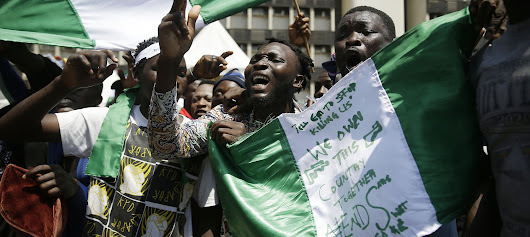By Charles Okoh
It appears that there will be no end in sight to the killings in Kaduna as well as Benue states. The lackadaisical approach of the Federal Government to halting the carnage in both states remains worrisome. If it is argued that the sheer spread of violence and wanton killings across the country have become too much of a burden for the government to handle, will it be out of place to demand from the Federal Government what its plan is towards ending the senseless killings especially in these states?
No fewer than 29 people have been killed in a fresh attack by bandits on Runji Village in Zangon Kataf Local Government Area of Kaduna State.
The attack which occurred at about 10 p.m. penultimate Saturday night came barely three days after bandits killed eight people at the Atak’Njei community also in Zangon Kataf Local Government Area.








%20crowd.jpg)











